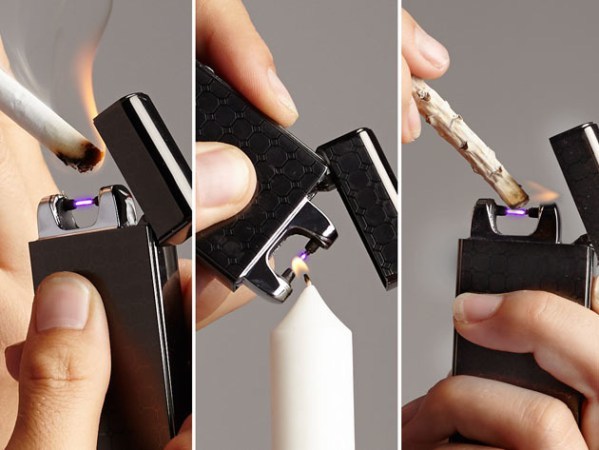Rio Tinto is a giant UK/Australian mining corporation that operates many facilities in Australia’s remotest reaches, where there is no housing for workers, so the company ends up building “company towns” where their laborers live, closing the loop between home and worklife, and putting them both under control of a corporation; now the company is flirting with the kind of “smart city” technology that has been tried elsewhere, but generally in places where the residents are citizens, not employees, and the governing law is created by a legislature, not a non-negotiable employment contract.
report this ad
As you might imagine, the results are pretty ghastly.
Last March, Rio Tinto announced that it had contracted with the French private prison operator Sodexo to add surveillance instrumentation to its operations, including 3,259 residences. When the Guardian chased up the announcement with an interview request, Sodexo and Rio Tinto were initially enthusiastic and revealed much of what they had planned, but the companies quickly realized that this might make them look like Orwellian monsters and so they refused to discuss the matter further.
From the brief moment of openness, we learned that the plan is to stream live telemetry from the Rio Tinto site to a control room in Perth where 50 staffers will continuously monitor and respond to the data, which would “capture individual insights on where employees are spending their time and money.”
Initially, surveillance would come from static CCTVs and drone-mounted cameras, with plans to add “sensors to light poles and rubbish bins.”
The companies later backtracked and insisted that everything would be “in line with both Australian government legislation” and “Rio Tinto privacy policies” — which is to say, they can do whatever they want, because anything forbidden by law can be permitted by forcing workers to accept a “privacy policy” through which they’d “consent” to surveillance that goes beyond Australia’s already weak privacy protections for workers who are being spied upon by their bosses.
These miners are also canaries: the things that are normalized in mining camps will be used as evidence to support invasive municipal surveillance in other places. That’s in accord with the surveillance lifecycle: first measures are tried on prisoners, then mental patients, then schoolchildren, then blue collar workers, then white collar workers.
In July the Western Mine Workers’ Alliance raised concerns about new surveillance measures at Western Turner iron ore mine in the Pilbara, where workers noticed CCTV cameras had been installed.
The union claimed employees only realised they were being watched after hearing supervisors comment about their new ability to “zoom right in” on workers.
“This was a concern on many levels not least privacy, anyone who has worked in a remote area of a mine site knows that toilet facilities are few and far between,” the union noted.
Sodexo says smart waste disposal units would enable their central operating team to be alerted when bins need emptying. But civil liberty advocates have raised concerns that smart bins are capable of monitoring not just the quantity of rubbish, but what exactly is being thrown away.
Sue Crock, the coordinator of the mining sector mental health service This Fifo Life, expressed concern about the impact of expanding the potential for surveillance at a time when mass layoffs have Rio Tinto employees fearing for their jobs. Last month up to 500 more redundancies were confirmed, bringing the total number over two years to 2,000.
Revealed: Rio Tinto’s plan to use drones to monitor workers’ private lives [Max Opray/The Guardian]
(via We Make Money Not Art)
(Image: AERIAL OF A TYPICAL COMPANY TOWN, PD)
report this ad
Shivan, a computer science student in Montreal, applied for a job at Amazon; the second round interview was conducted remotely by a proctor from an online service called Proctor U who insisted that Shivan install a remote-access trojan on his computer that let the proctor completely control his machine; then he was made to use […]
READ THE REST
On Common Dreams, Paul Buchheit rounds up a ton of scholarly/economic papers on the ways that automation is coming to employment niches occupied by well-educated middle-class professionals, who face the same dilemma their “low-skilled” industrial colleagues have been living through for three decades and counting.
READ THE REST
Environmental lawyer-turned-Portland City Commissioner Steve Novick has a cool use for the new SEC rules requiring companies to disclose executive pay starting in 2017: he’s going to impose special taxes on businesses where the ratio of CEO pay to median worker pay exceeds 100:1 — an increase of 10% for 100:1 companies, and 25% for […]
READ THE REST
The Boing Boing Store’s Gift Guide is full of ideas for pretty much anyone in your life like hipster ice cub trays, Xbox controllers, Halo Boards, and even diamond necklaces. As always, all products in the Boing Boing Store come at great discounts, too. Shop by price bucket starting at under $20. Under $20:Bloxx Jumbo Ice Trays […]
READ THE REST
Unlike traditional lighters, the SaberLight features an electronic plasma beam that’s both rechargeable and butane-free. This sleek lighter is even approved by TSA, so you’ll never be stuck buying lighters you’ll just have to throw away partially used. For some people, like me, this is a pretty big game-changer. The SaberLight’s beam is actually both hotter and cleaner […]
READ THE REST
Holiday shopping is in full swing, and the Striiv Touch is one of the best gift ideas I’ve landed on. Its simple design works for females and males, and its wide range of features makes it suitable for even the non-fitness enthusiasts in your life.Unlike traditional fitness trackers, the Striiv Touch also acts as a smartwatch. It […]
READ THE REST
report this ad




